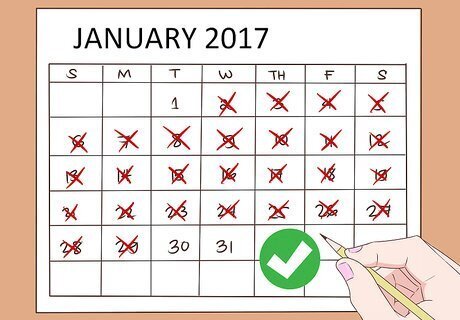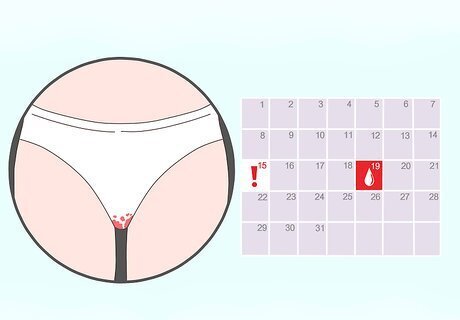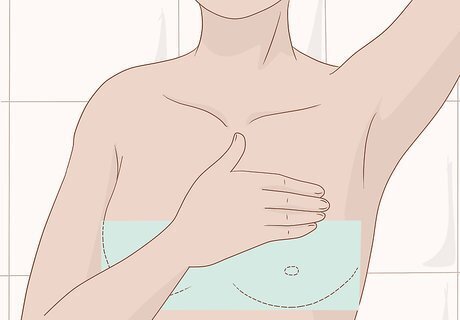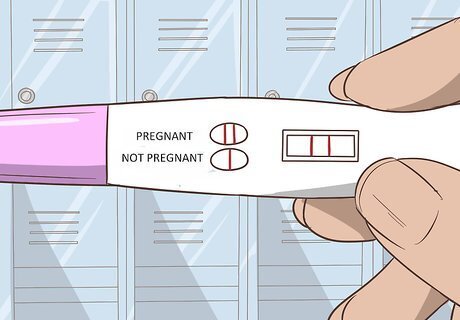
views
Noticing Changes in Mood and Energy

Notice your overall energy level. Fatigue is a common early sign of pregnancy. Even when you have not changed your routine or sleep schedule, you may feel tired throughout the day. Unexplained fatigue can be an early sign of pregnancy.

Take note of any changes in tastes. You may not experience food cravings right away. However, early on in pregnancy you may suddenly develop an aversion to certain foods. You may dislike the smell of a food or drink you once enjoyed or did not mind.

Think about whether you've been moody. Pregnancy hormones can cause changes in mood early on. You may notice you get angry or frustrated more easily or are very emotional. You may cry over sad commercials or television shows more easily. These mood swings may be similar to what you experience just before your menstrual cycle.
Paying Attention to Physical Changes

Keep track of your menstrual cycle. A missed period is usually the first sign of pregnancy. You should track your menstrual cycle to know roughly when to expect your monthly period. If you do not experience your period within this time frame, this can be an early sign you're pregnant.

Pay attention to unusual nausea. About a quarter of pregnant women experience nausea as the first sign of pregnancy. You may feel sick to your stomach at certain times of the day. Strange smells may easily trigger feelings of nausea and sickness.

Note unusual bleeding or spotting. Implantation bleeding sometimes occurs just after pregnancy, possibly due to a sperm attaching to an egg. Some women may mistake this for a very light period, but it can be a sign of pregnancy if you are also experiencing other symptoms. Implantation bleeding or spotting is much lighter than your regular period. You may only notice it when you wipe. The color also may differ from a regular period. It may be more pink or brown-colored than usual.

Evaluate if you have unusual aches and pains. Pregnancy can cause unexpected physical discomfort. Usually, this takes the form of mild uterine cramping as well as tender, sore breasts. Like many symptoms of pregnancy, these are often similar to pains you may experience just before your period.

Look for changes in urination habits. During pregnancy, your kidneys produce extra fluid due to increased levels of blood in your body. Many women notice increased urination during pregnancy. If you find yourself using the bathroom more often, this could be an early sign that you are pregnant. Just after you become pregnant, it's normal for your body to produce up to 25% more urine. The increase in urine will peak at 10-15 weeks of pregnancy. After that, you'll likely feel increased urges to urinate, as the additional weight of your uterus and growing baby press down on your bladder.

Notice breast tenderness. Breast tissue is very sensitive to your hormones, so your breasts will show signs of pregnancy early. You may start to experience tender, swollen breasts as early as 2 weeks after conception. It's normal to feel a tingly sensation and soreness. Your breasts may also start to fill full and heavy.
Seeking Medical Evaluation

Take a home pregnancy test. If you suspect you are pregnant, pick up a home pregnancy test at a drug store. Follow the directions on the package and take the test at home. Usually, you pee on the stick or gather your urine in a cup and dip the stick in the test. The best time to take a home pregnancy test is in the morning when your levels of the hormone HCG are highest. Most pregnancies tests can be taken a few days after your missed period. However, there are some tests on the market designed for early detection, like e.p.t., that you can try. Refer to the package's instructions for precise directions on when to take the test. Tests are more accurate after your missed period. If you suspect you are pregnant before missing your period, go to the doctor instead of taking an at home test.

Make an appointment with your healthcare provider. If you suspect you are pregnant, or have a positive pregnancy test, make an appointment with your doctor. During your first visit, your doctor will run tests to confirm your pregnancy. A doctor may perform a urine test in the office or they may order blood work. Your doctor will also ask you about your medical history, past pregnancies, your general lifestyle, and any medications you're currently taking. Your doctor will perform a basic physical exam to make sure you're in good health.

Seek support. If you are pregnant, it can be an emotional experience. Waiting on the results of a test can be stressful, so talk to friends, family members, and the other parent about your emotions. You can also talk to a therapist if you have one.




















Comments
0 comment